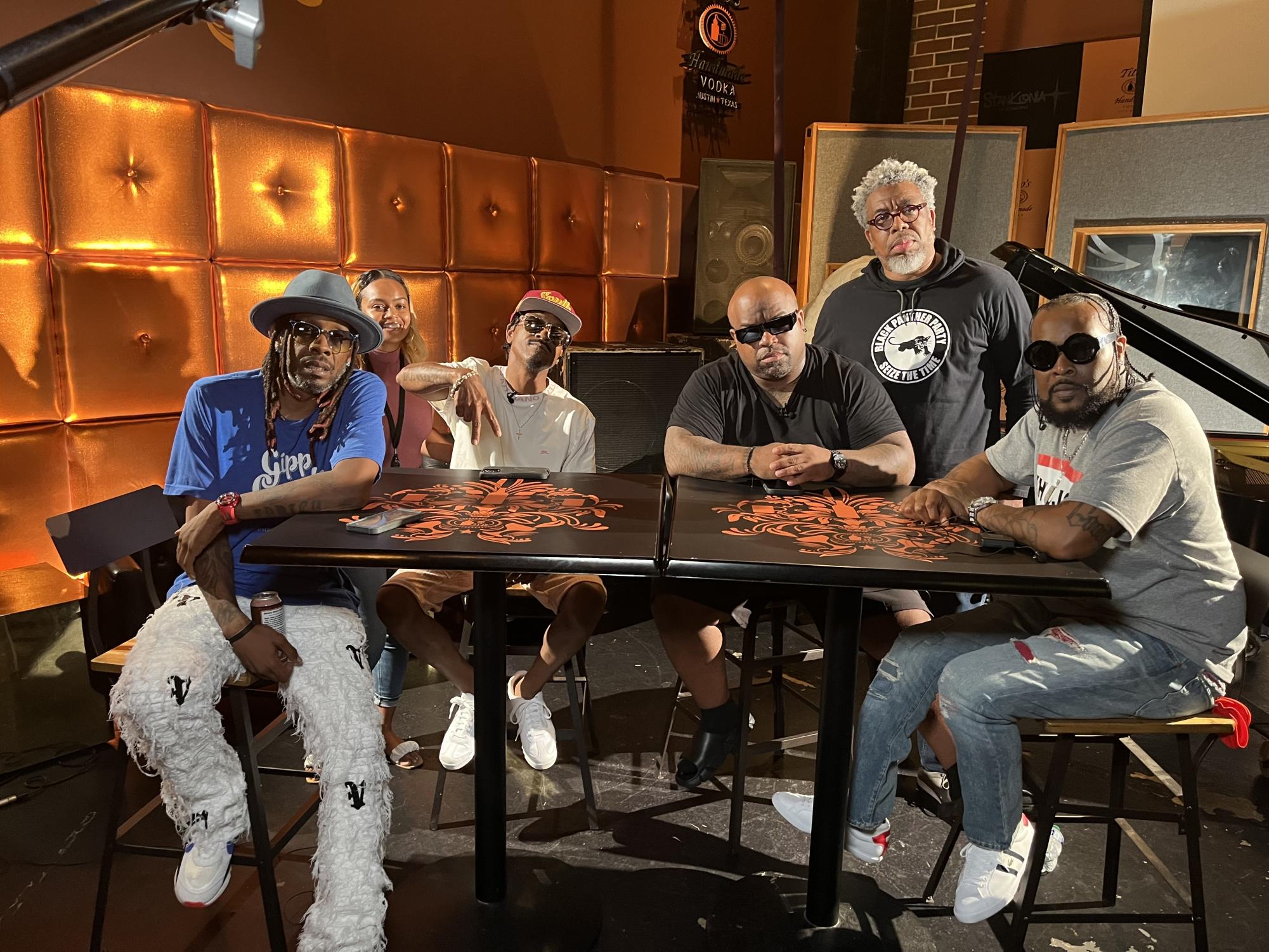
50 years of hip-hop shapes Atlanta’s culture, community
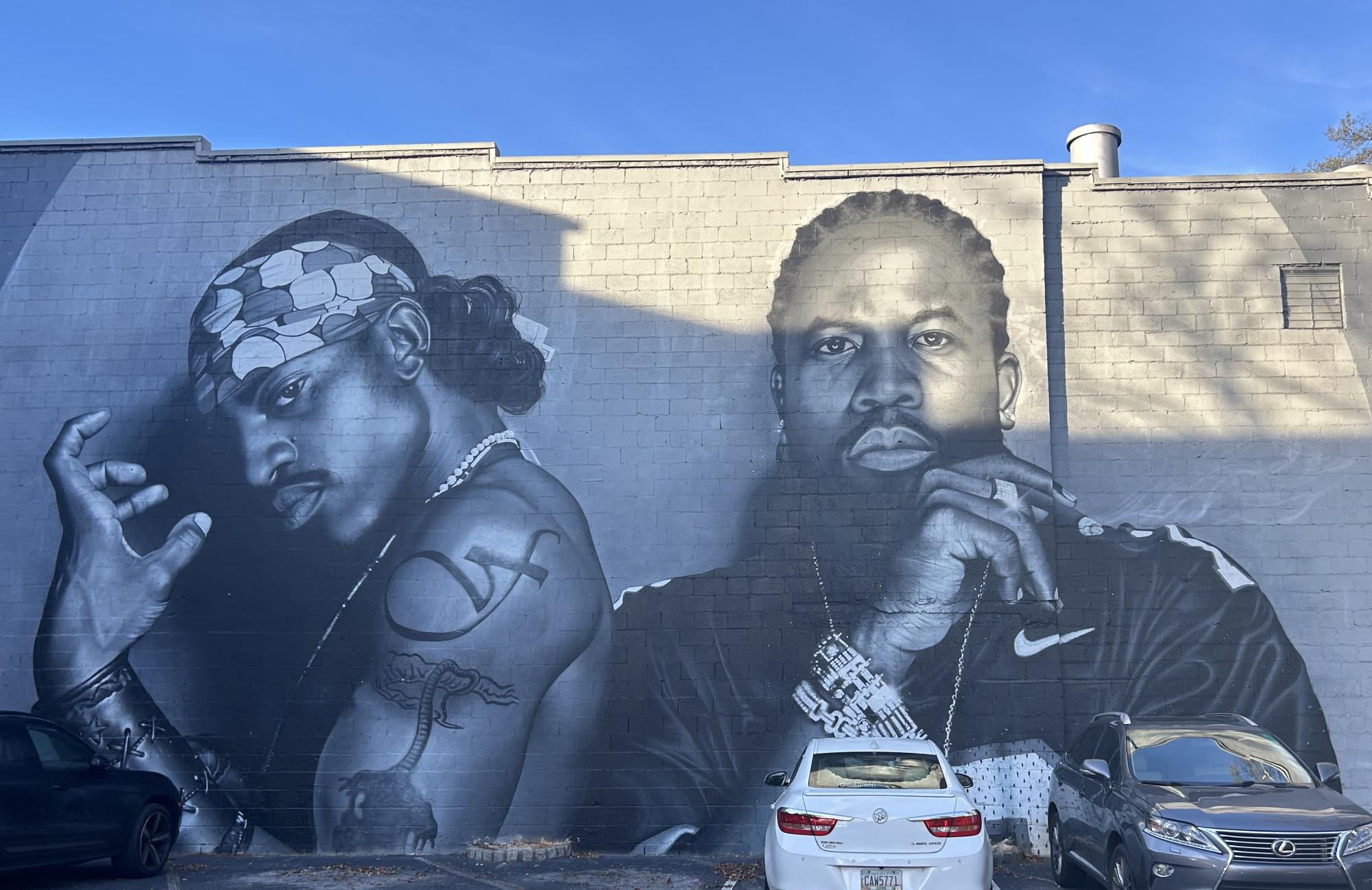
Half a century ago, a cultural revolution took root in the borough of The Bronx in New York City, and hip-hop emerged as a new embodiment of music, art, dance and culture. This movement soon cemented itself as a cornerstone of life in Atlanta.
By producing new forms of street style, self-expression and artistry, hip-hop cultivated Atlanta’s unique culture of vibrance and unity.
“Hip-hop is such an important genre,” Atlanta Journal-Constitution reporter Ernie Suggs said. “It touches everything, and there’s not a segment of any kind of culture that hip-hop does not touch. And that’s especially acute here in Atlanta.”
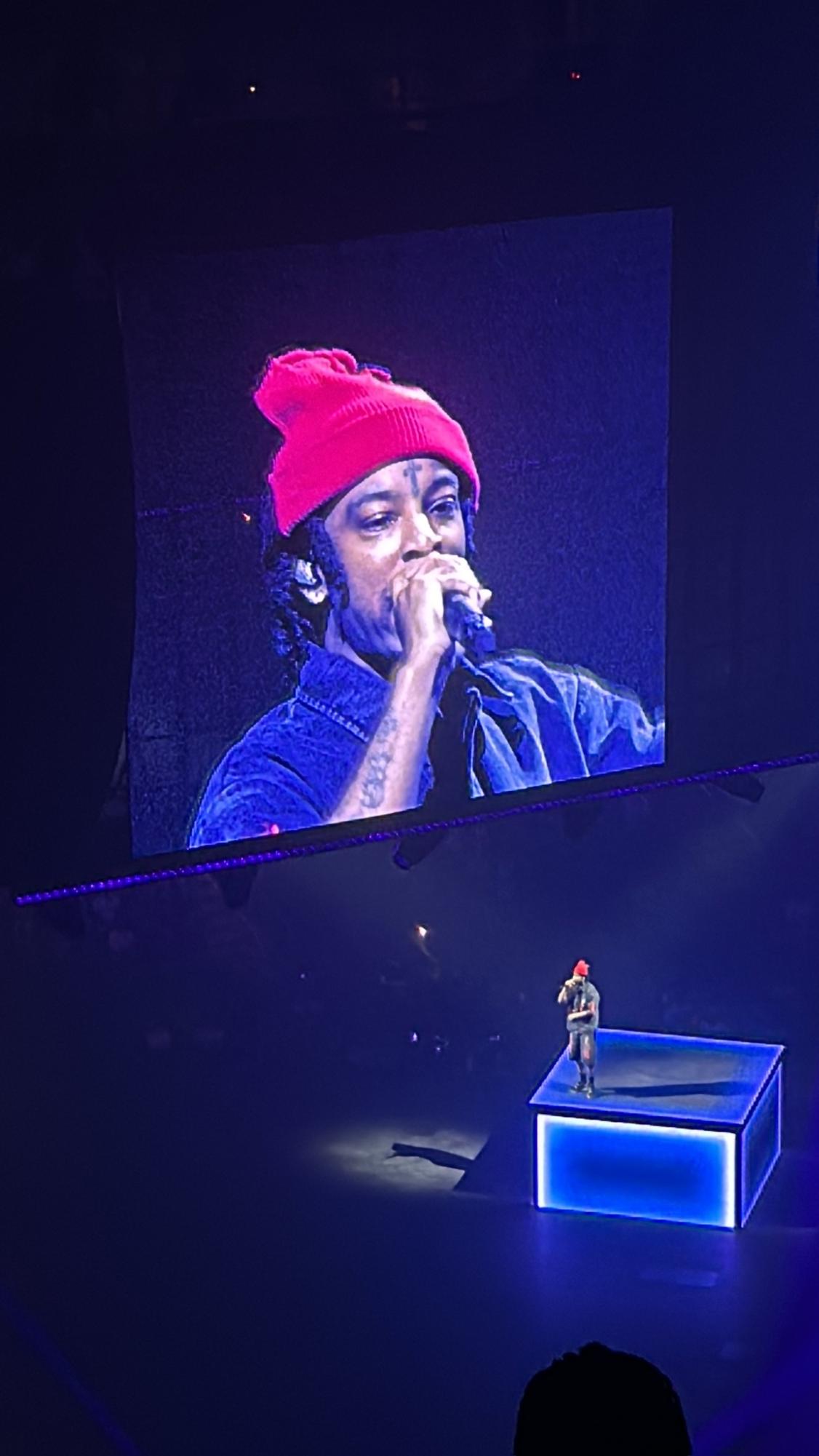
Hip-hop in Atlanta is not simply a music genre, but a force that has shaped the city’s identity. Through music, fashion, arts and architecture, hip-hop has touched every defining aspect of Atlanta culture, transforming it into what it is today.
“A lot has come out of Atlanta and Atlanta is a very strong creative space, especially for young people, so I think that the expressions of hip-hop and all of its forms have flourished in Atlanta,” Atlanta’s director of cultural affairs Camille Love said.
Love has noticed the presence of hip-hop inspired art across Atlanta’s landscape, including graffiti.
“Graffiti is everywhere in Atlanta, graffiti artists are making a mark on the world,” Love said. “They are embracing and enhancing our environment all the time. It is a form of expression that I think has come out of hip-hop and is one of the pillars of hip-hop.”
Sekou Cooke is the curator of “Close to the Edge: The Birth of Hip-Hop Architecture,” an exhibition showcasing the influence of hip-hop on architecture that was featured in October 2022 at the Museum of Design Atlanta. Cooke said hip-hop architecture is a pivotal aspect of shaping Atlanta hip-hop culture.
“One could argue quite easily that hip-hop is our current dominant culture, so the architecture really needs to reflect who we are and how we live, what our culture is, what society thinks about our culture,” Cooke said. “Everything that we know of our lives as in hip-hop culture, can shape the way that we live in cities can shape the way … that we live in and exist in any part of our built environment. From buildings to train stations, from museums to streetscapes, all of that is all of the realm that hip-hop culture can affect.”
Close to the Edge was held in several major American cities, but saw the most success when it visited Atlanta, Cooke said.
“The show in Atlanta was the biggest show in terms of square footage and size,” Cooke said. “It was also the biggest show in terms of popularity and attendance because Atlanta is now the current epicenter of hip-hop culture. The saying is that hip-hop was born in New York, but now lives in Atlanta.”
Cooke said this unprecedented success stems from Atlanta’s pride and embracing of its hip-hop climate.
“The Atlanta hip-hop community understood [the exhibition] from a different angle,” Cooke said. “They understood it from a hip-hop cultural space and they understood how important that culture is … there’s a lot of talk about all these larger infrastructure projects and the new developments happening in Atlanta, and then being more aware of the influence of hip-hop culture in that space. So, if Atlanta is where Hip-Hop lives, then Atlanta is definitely where hip-hop architecture needs to be really, really visible.”
Cooke said hip-hop architecture can revive and empower marginalized communities within Atlanta.
“Atlanta, just like any other American city, has a history of wiping out different neighborhoods, that in most cases were predominantly black neighborhoods,” Cooke said. “Hip-hop architecture has the power to revisit those histories, make them more visible and more relevant and also allow us to remix the old with the new and take a whole new stance on that. So, this is important for Atlanta; this is important for any American city.”
For the 50th year of hip-hop, Atlanta has taken measures to educate about hip-hop’s significance in the city and its influence on the urban landscape.
“The Mayor’s Office of Cultural Affairs has a citywide festival called elevate,” Love said. “So. this year and in commemoration of 50 years of hip-hop, we dedicated our festival to hip-hop. There were movies; there were murals … we have hip-hop break dancing for kids. We read them stories about hip-hop, and we’d tell them history of hip-hop.”
In recognition that youth may be less familiar with Atlanta hip-hop than older generations, Love said the City of Atlanta hoped the festival events would enable youth to learn about hip-hop in Atlanta.
“We tried to provide a holistic program that covered all aspects of hip-hop,” Love said. “We tried to create programs around it … that would remind and educate a generation that … didn’t understand the impact that Atlanta has had on hip-hop.”
This commitment to celebrate 50 years of hip-hop in Atlanta has been mirrored by Atlanta’s popular music festivals, Love said.
“Music Midtown for multiple years has had to include in its lineup of artists, but among a lot of other kinds of artists,” Love said. “One Music Fest has included hip-hop artists, along with other music types in its festival over the 15 years it’s been in existence. What was eventful about this year is that and having a milestone like 50 years, I think allowed Atlanta to really focus on bringing in the best and the brightest of hip-hop, and I think that’s what happened with music Midtown and with one Music Fest this year.”
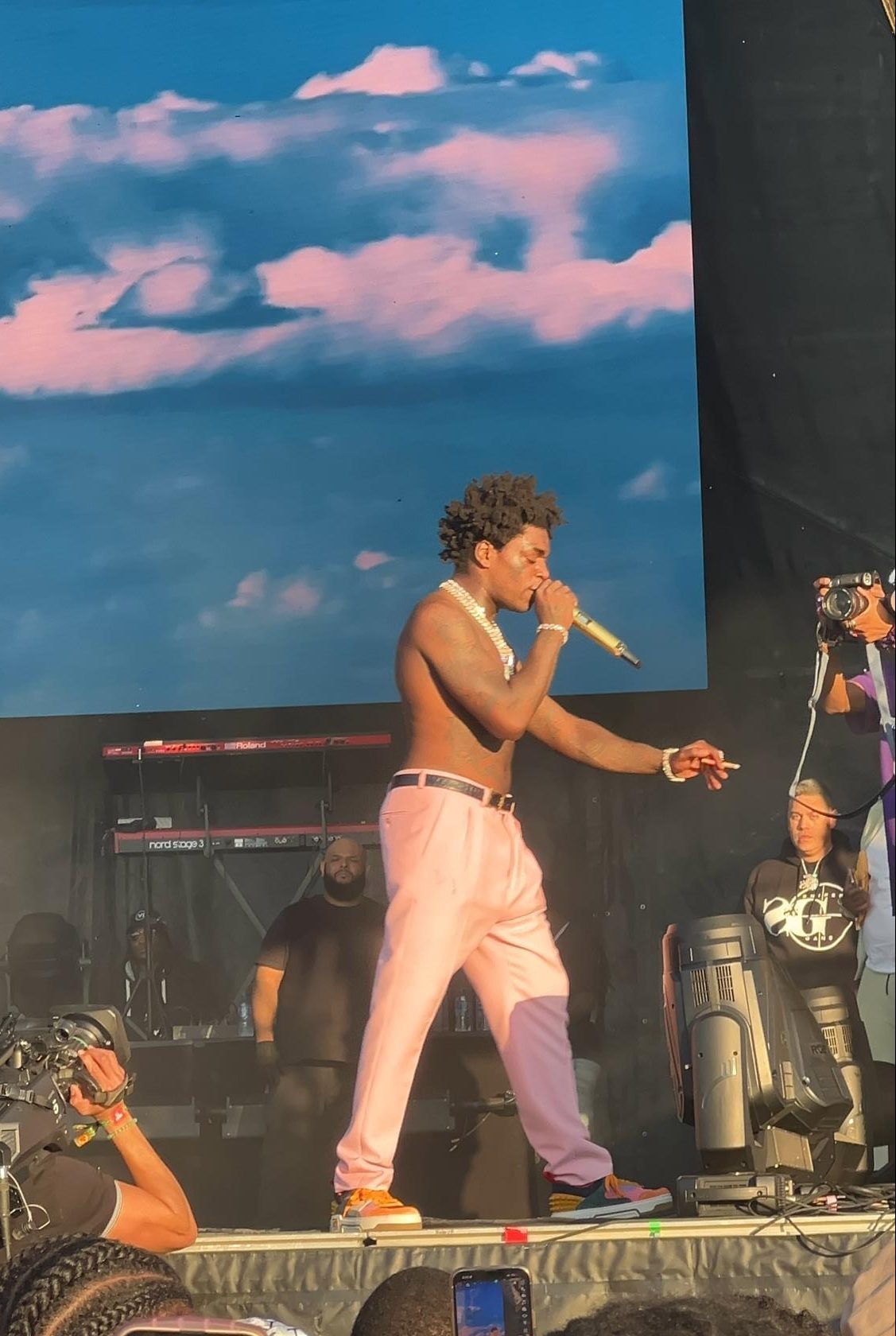
According to Suggs, Atlanta’s vibrant culture is characterized by diversity, yet its culture is deeply enveloped in togetherness. Suggs has covered the AJC’s “50 Years Of Atlanta Hip-Hop” segment and said Atlanta’s history and heritage have found a unique expression through hip-hop, allowing the community to unify.
“I think that what shaped Atlanta’s road to hip-hop is the fact that we are Atlanta,” Suggs said. “We are a city that is steeped in culture, steeped in civil rights, steeped in race relations, steeped in a tradition of black excellence, but also a tradition of black warmth and togetherness and downhomeness.”
Within a decade of the conclusion of the Civil Rights Movement, hip-hop emerged on the scene. Given Atlanta’s pronounced role in the Civil Rights Movement, the emergence of hip-hop in the city fostered a sense of unity.
“[Hip-hop is] interested in developing entrepreneurial skills of a post-civil rights generation,” Joycelyn Wilson, Assistant Professor of hip-hop studies, said. “It comes on the scene interested in bringing people together who … at one point in time and in history had to be segregated from one another. This is a culture that brought black and white and poor and middle-class people together under this expression.”
Hip-hop artist and performer ZZTAYLOR, who has gained popularity in the Midtown community through his vibrant car top performances, said hip-hop is a staple in Atlanta culture and has united the people through providing a voice for marginalized communities, creating a thriving culture.
“I feel like black people hold on to hip-hop as a culture a lot because it really defines us and gives us a sense of expression,” ZZTAYLOR said. “I feel like in Atlanta, black culture is very prominent and blooms heavily, especially over a lot of other cities. You don’t see a lot of black people flourishing like you do in Atlanta in other places … so I feel like the arts and the culture just kind of reflect Atlanta’s natural state of being, state of culture.”
Atlanta’s hip-hop movement was not always as prominent as it is today. Originally, the Bronx and Los Angeles were seen as the forefronts of hip-hop. However, Atlanta artists have played a role in making Atlanta a key influencer of hip-hop across the U.S.
“What’s coming out of Atlanta is shaping the culture, but that wasn’t always the case,” Suggs said. “This is something that’s really happened over the last 20 years or so. Places like New York and Los Angeles, in particular, dominated the scene. But then you have people like Jermaine Dupri, the Dungeon Family, Goodie Mob, Outcast, TI, Killer Mike, Arrested Development, Kriss Kross, all those people came down here and kind of set a flag, planted a flag to say that, ‘Hey, we could do this here in Atlanta, as well.’ Not only can they do it well, they could do it at a level that is going to be trendsetting and groundbreaking.”
Love said Atlanta has now become the headquarters of hip-hop, effectively shaping its culture and bringing new life to the community.
“Atlanta has now become the epicenter for hip-hop worldwide,” Love said. “It may have started in Brooklyn, it may have gone to the West Coast, but now Atlanta has become the place where anyone who’s interested in hip-hop wants to stop off here first.”
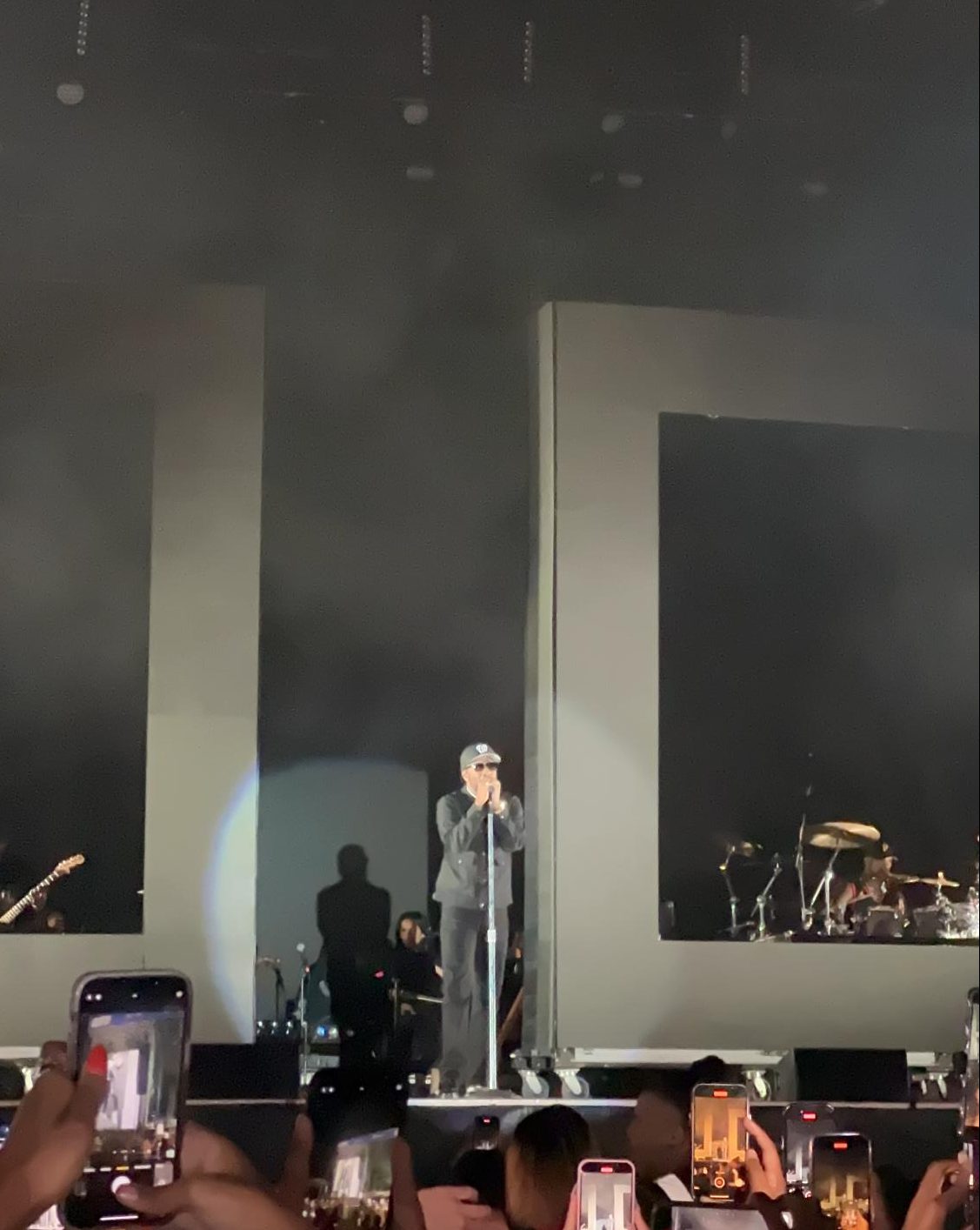
The Midtown community is full of hip-hop artists, many hoping to make a name for themselves in the music scene, and some already sharing their unique sound with millions around the world.
Junior Christian “AntiChris” McLean has been in the music business for as long as he can remember, honing his love and passion for hip-hop.
“I’ve been in the studio since I was 9, making music in Los Angeles recording studios,” McLean said. “[I was] making songs at 11. I got 71,000 views on Instagram at 13 after I dropped my first song.”
McLean said Midtown’s hip-hop artists, who have influenced culture and established Atlanta as the best city for music production, have served as inspiration for him to express himself through music.
“This is the best place to be making music, right now,” McLean said, “Atlanta would not be Atlanta without hip-hop. When you think of Atlanta, you think of your favorite rappers.”
Junior Devin Briggs said he has always loved hip-hop dance and that hip-hop in Atlanta has allowed him to express his creativity and passion.
“I started dancing when I was really young, probably about 4 or 5,” Briggs said. “Usually, in dance, there’s a slower beat or a more contemporary style, but hip-hop doesn’t follow any kind of rules, it’s a powerhouse in itself.”
Briggs said Midtown has immersed him in a community of hip-hop dancers, feeding off one another’s creativity.
“Atlanta, being the capital of hip-hop music, has introduced me to a large community of hip-hop dancers,” Briggs said. “Hip-hop dance has brought Atlanta together in my opinion.”
ZZTAYLOR said that hip-hop was a form of expression that nourished him with a sense of belonging.
“I would say hip-hop saved my life,” ZZTAYLOR said. “Hip-hop gave me the big brother that I didn’t have. Being an only child, I didn’t really have too much to look up to; hip-hop was that. I feel like hip-hop raised me from a young age.”
The hip-hop community in Atlanta has allowed a new generation to express their creativity and source inspiration from the culture and style that Atlanta artists have fostered over the last 50 years, McLean said.
“[Hip-hop] really changed my life,” McLean said. “I wake up every day, and I just listen to my favorite rappers. I take some things they do and put it inside my own style, then I just recreate it some other type of way and put it out for people to listen to and make your day better.”
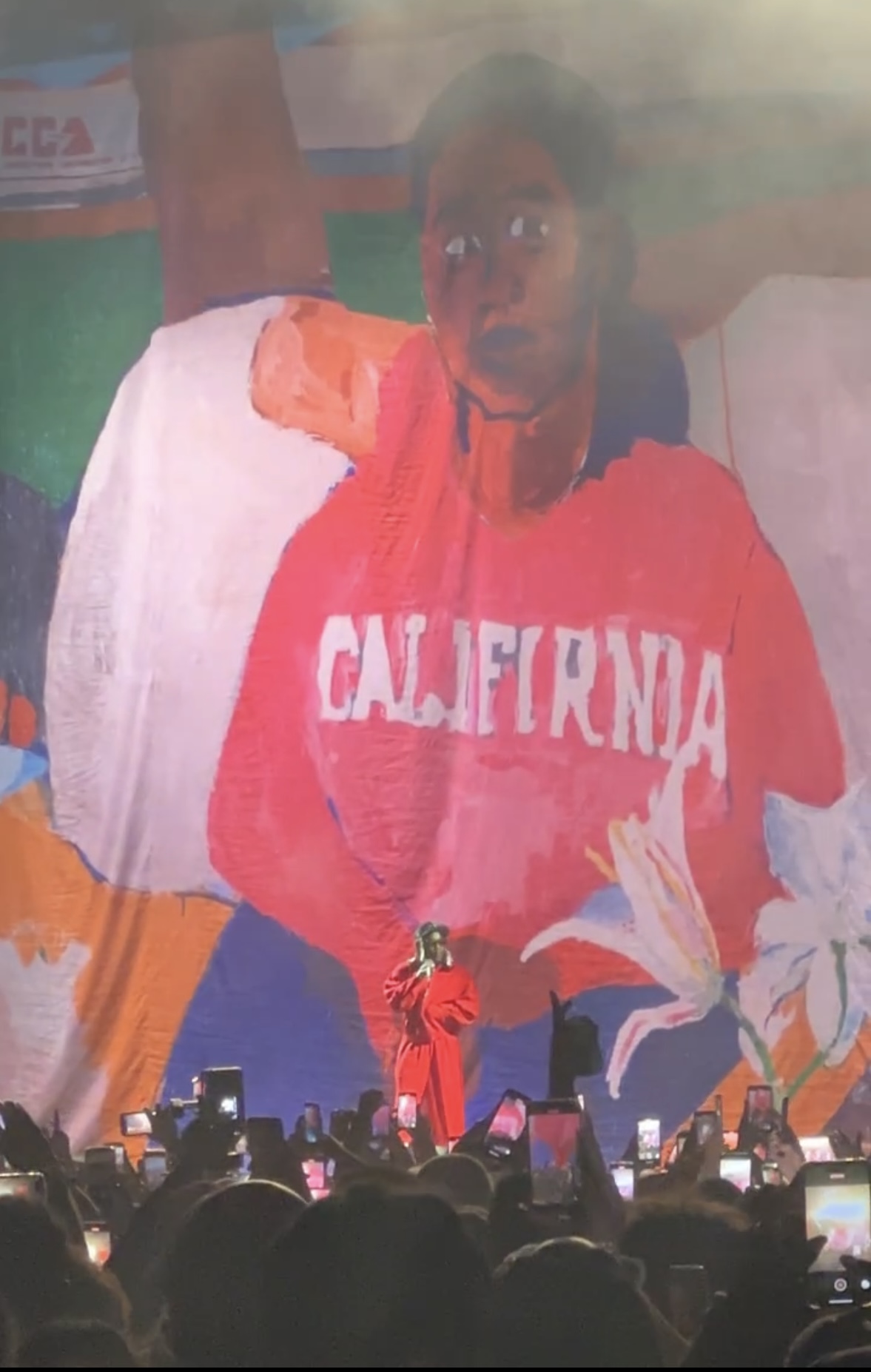
As the hip-hop movement surfaced in Atlanta, hip-hop took root in the city’s schools. Schools across Atlanta quickly became nodes for creativity and innovation, paving the way for hip-hop’s influence in Atlanta.
“Hip-hop’s core is about knowledge acquisition; hip-hop is obsessed with school,” Wilson said. “It categorizes itself around schools, it is an expressive tradition rooted in a generation learning about themselves. So, it comes on the scene interested in schooling and knowledge.”
Wilson, who grew up in Atlanta and graduated from Mays High School, said she thrived in an educational atmosphere that embraced hip-hop.
“I remember having teachers that integrated [hip-hop] into the classroom,” Wilson said. “It was not a research area; it was just teachers recognizing what their students were into and they decided to integrate that into the class. We had talent shows and so many different out-of-school activities that incubated our creativity during the time that hip-hop was developing.”
Chorus teacher Kevin Hill said he often adds elements of hip-hop to his curriculum so that his students can receive a comprehensive education grounded in their surroundings.
“I think every genre of music is important to education, and I think every student of music should be looking at all different genres of music,” Hill said. “Within the past 20 years Atlanta has felt like a hub for a lot of hip-hop, so to not talk about that in the city of Atlanta, is kind of missing the boat.”
According to Hill, hip-hop education is crucial to Atlanta schools because it provides students with a deeper connection to their community.
“It’s [Hip-hop is] definitely part of music education,” Hill said “I think it’s important to know the music of your community and the history. I think you have a better understanding of your community and a better appreciation of the people in your community if you know the music.”
Wilson said her generation grappled with unique challenges that enabled them to pioneer modern hip-hop by adapting to their surroundings.
“You’re dealing with the generation of black and brown kids who had the arts pulled out of the school system, but the creativity wasn’t pulled out,” Wilson said. “So, if I can’t learn how to play a saxophone at school, I’ll just sample it from my parents’ jazz albums. If I can’t get access to a drum set, I’ll just use these turntables and this mixer to sample these drums from James Brown music, for example. So, this is a culture and an aesthetic that’s rooted in innovation.”
For Wilson, this fusion of hip-hop and education has had a profound influence on her academic aspirations.
“I think it impacted decisions that many of us made as it relates to our careers,” Wilson said. “The school was this creative incubator for us and having it happen at the same time that hip hop was in his formative years was definitely something that created a space for us to actualize our talents and our gifts in a professional way.”
Suggs said the strong presence of hip-hop in Atlanta has not only influenced the local academic atmosphere, but also actively incorporates hip-hop into higher education.
“You’ve got professors at Georgia State, like Maurice Hopson, at Georgia Tech like Joycelyn Wilson, at Kennesaw State like Virginia Bradley, who are Ph.D. serious scholars, who’ve written books and lectured at Harvard and across the world, who specialize in hip-hop because hip-hop is such an important genre,” Suggs said.
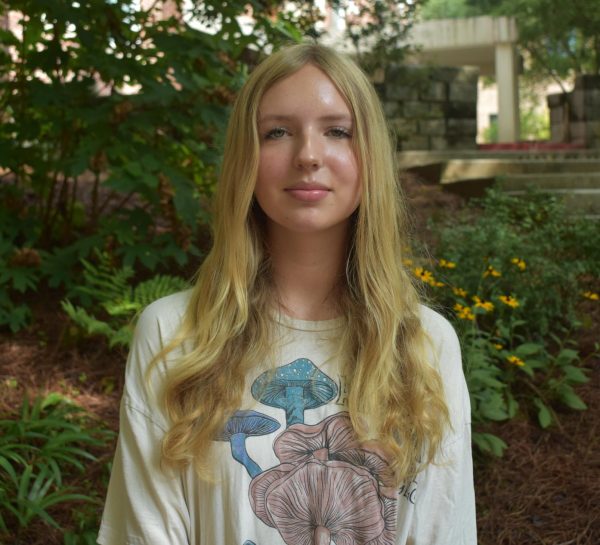






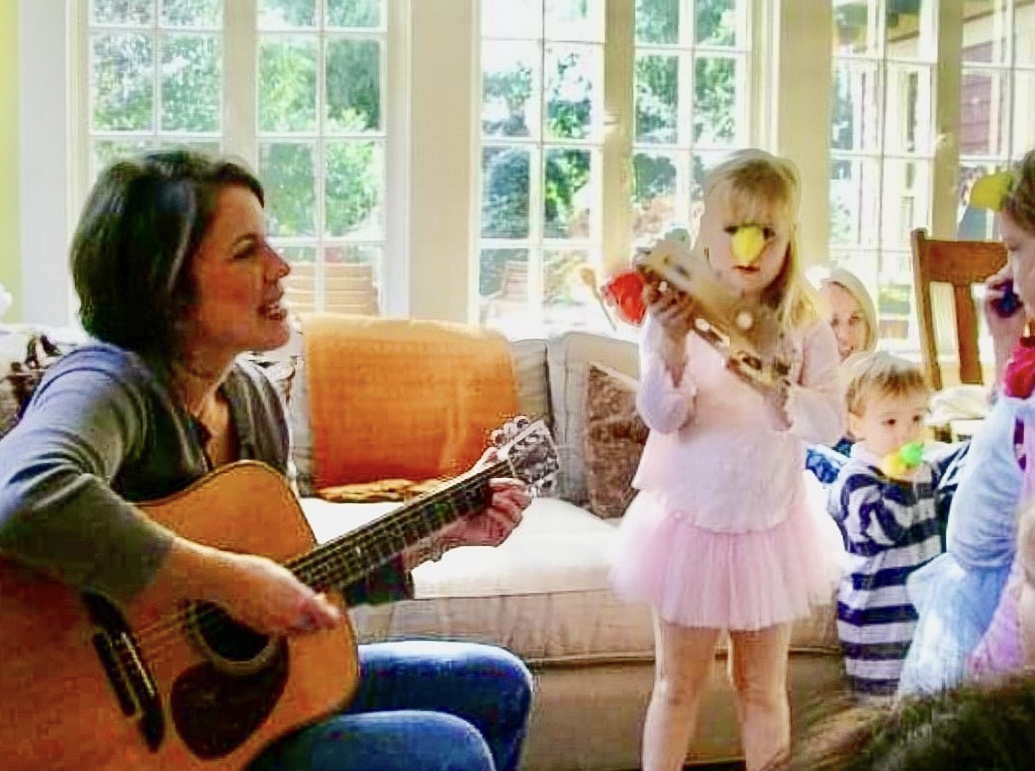

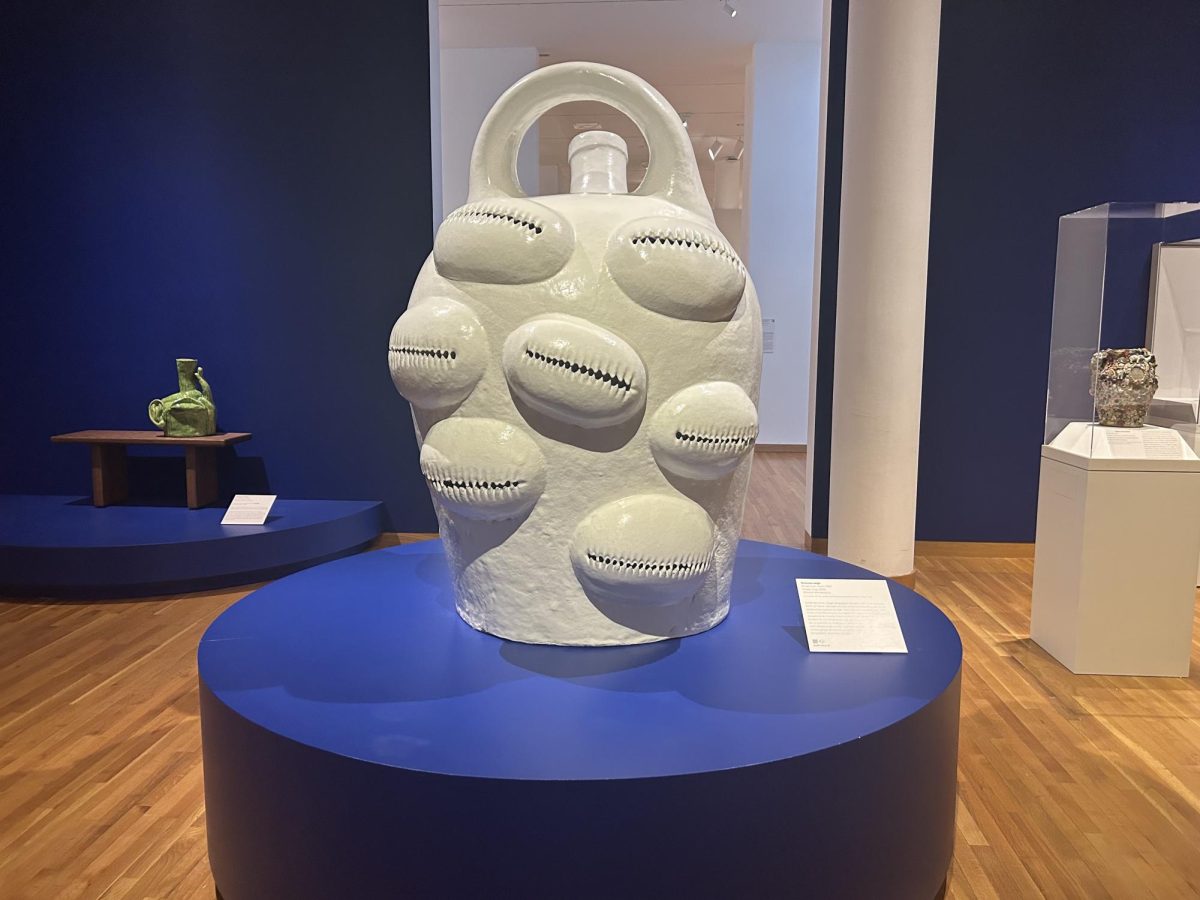
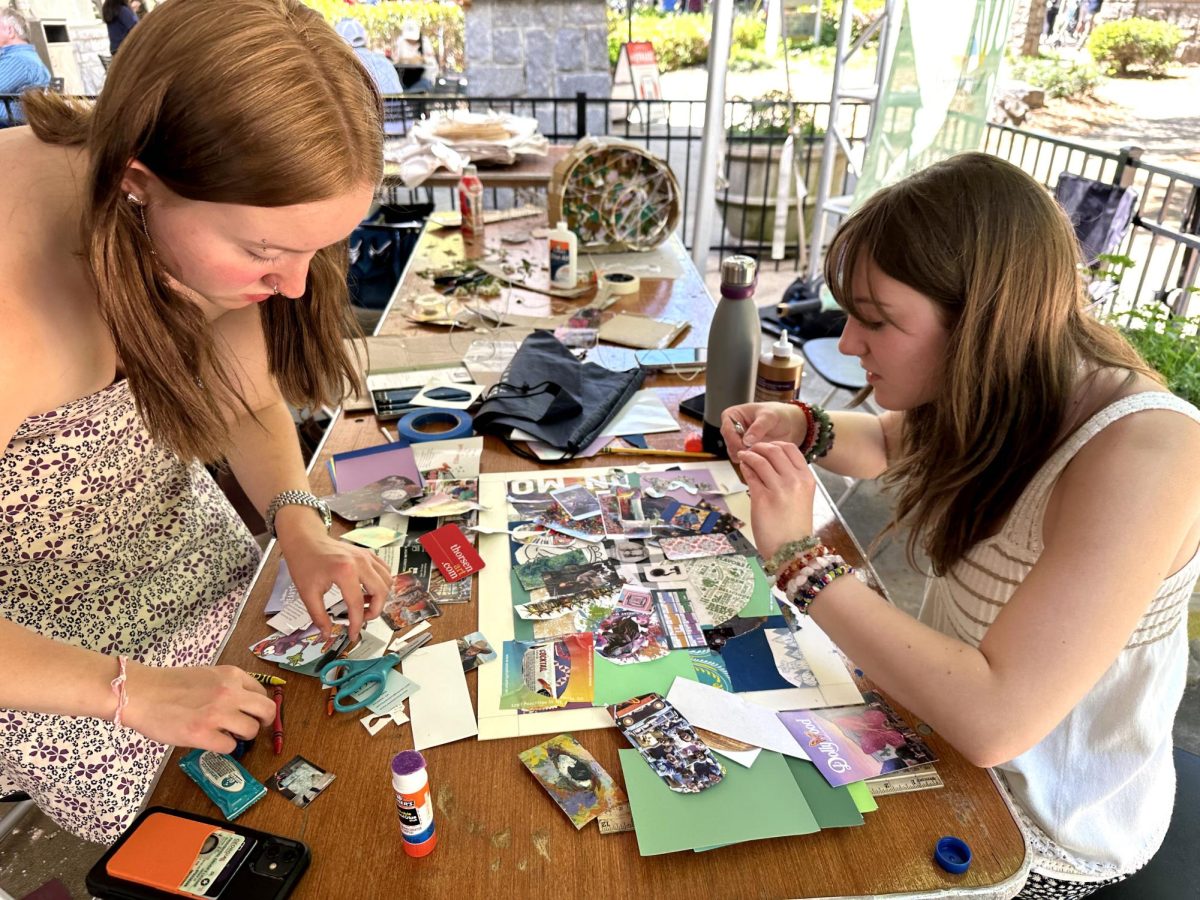
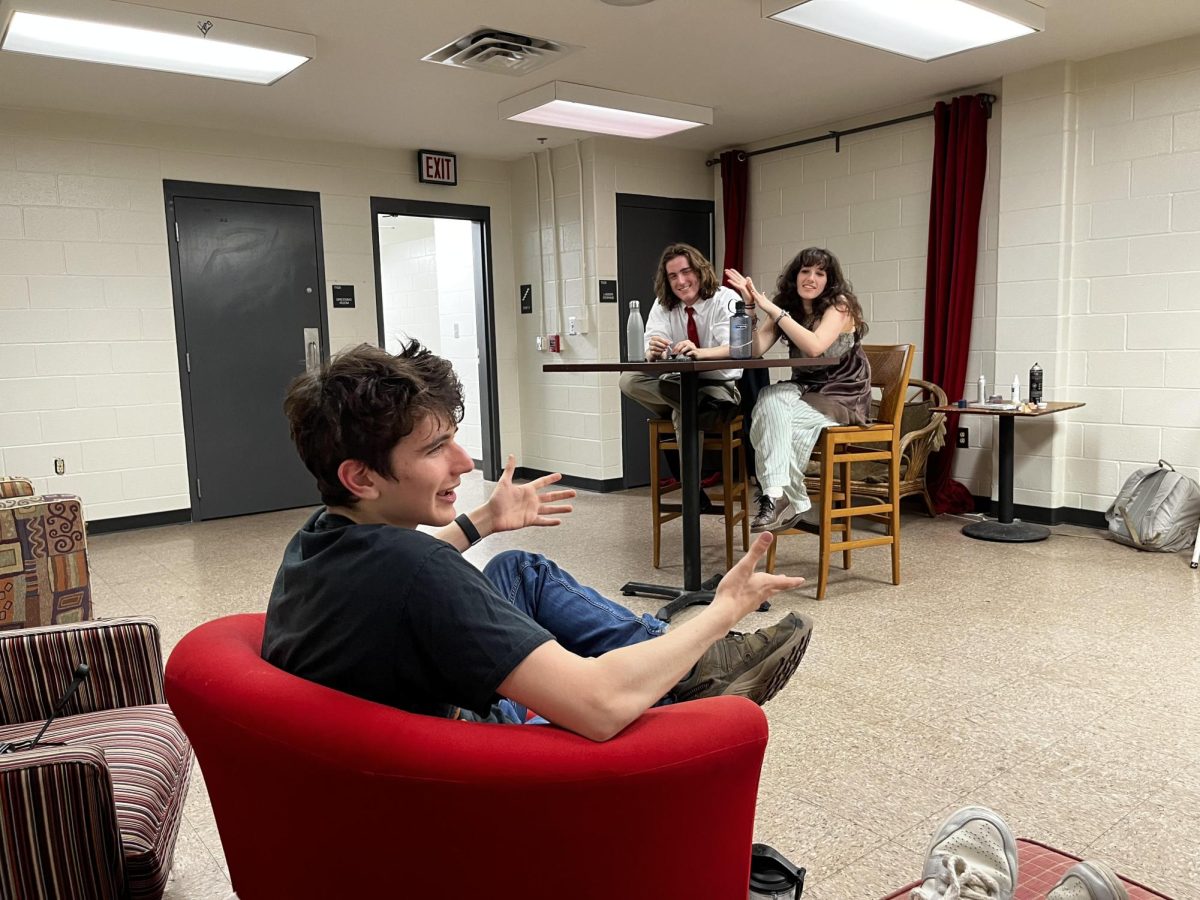







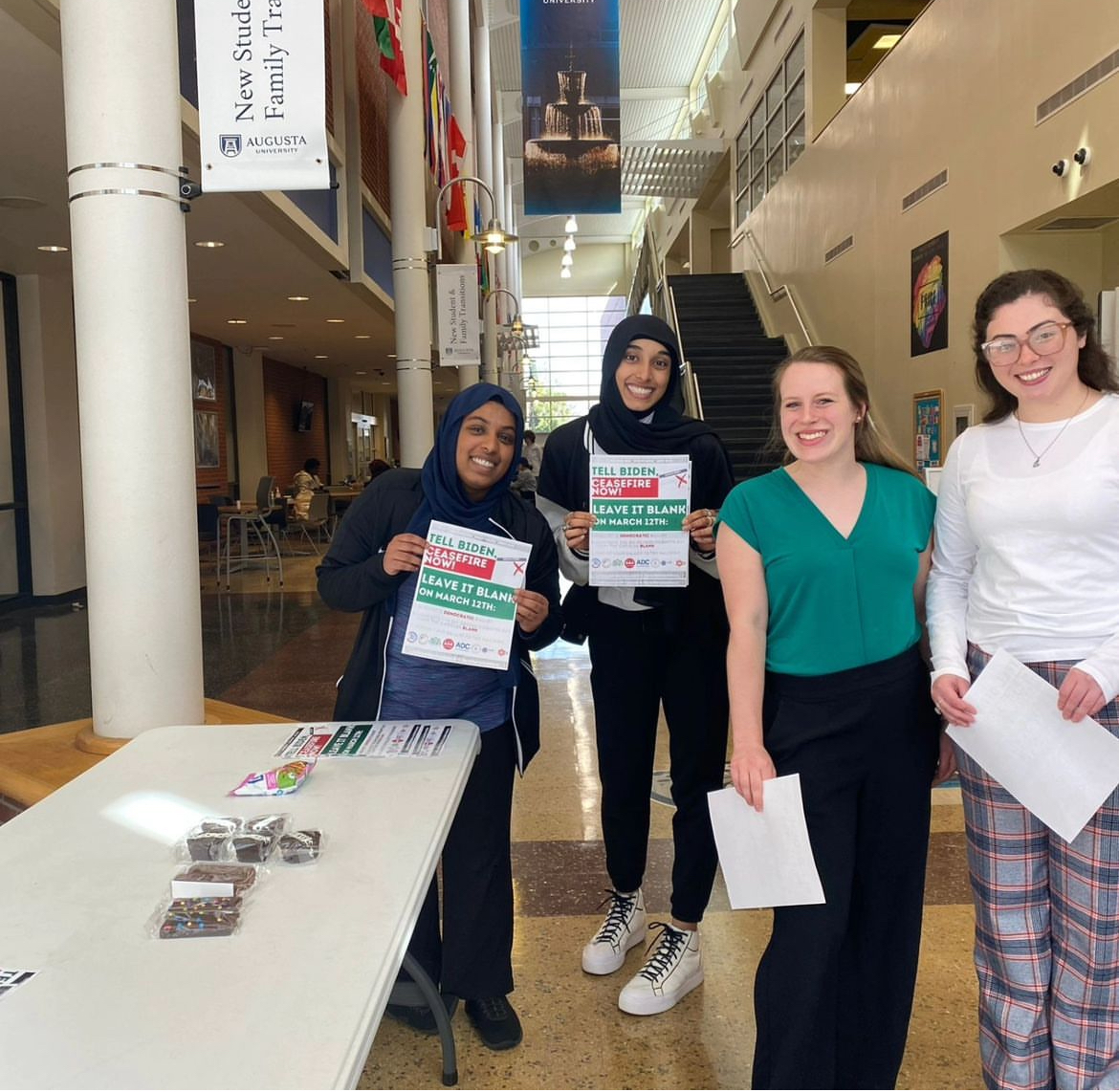
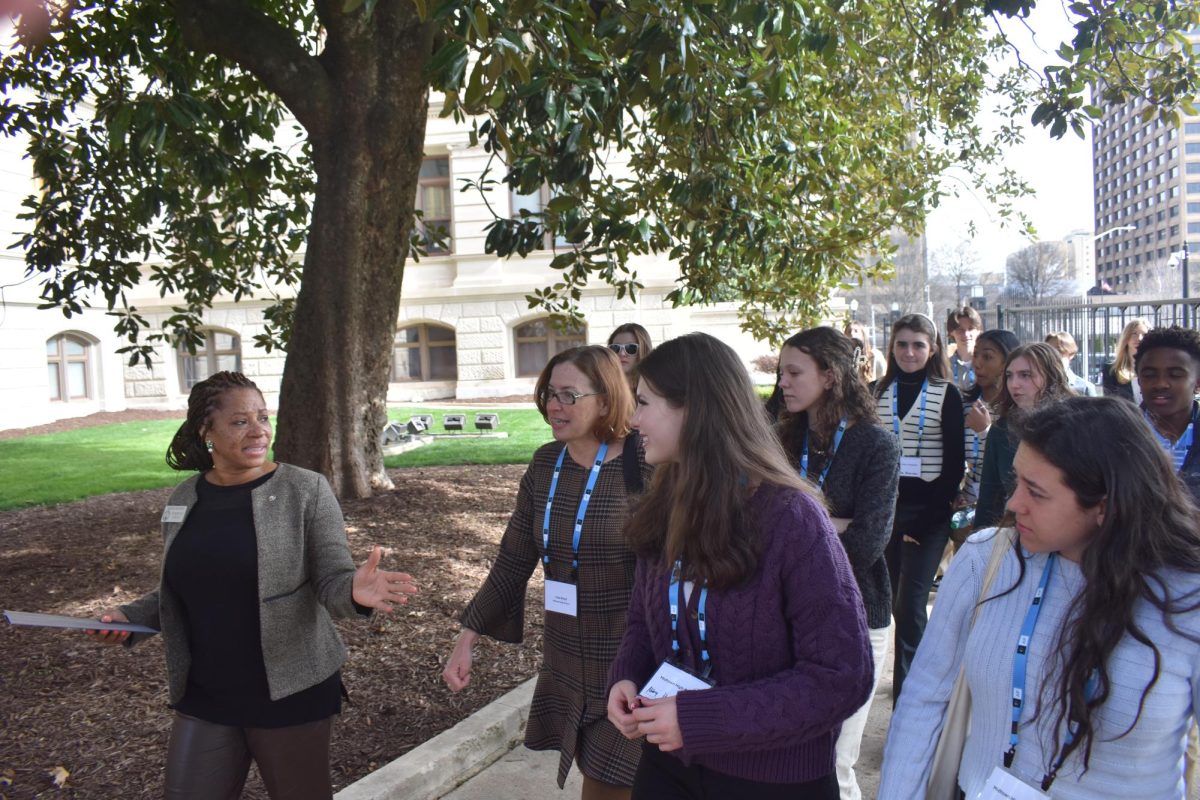

![CONNECTING COMMUNNITES: Ivan Allen Jr. [pictured right] engaged in racial issues throughout his eight years in the Atlanta Mayor’s office and worked closely with Dr. Martin Luther King Jr. [pictured left] and the Southern Christian Leadership Conference. Dr. King’s wife, Correta Scott King [depicted in forefront left]
said about Allen’s mayorial leadership, “With unflinching courage, he guided the city through some of the most turbulent waters.”](https://thesoutherneronline.com/wp-content/uploads/2023/12/vOMjwnRKEkWlFKoguUHd5WS6rQJLMdJ2Wm2I9GxI.jpg)
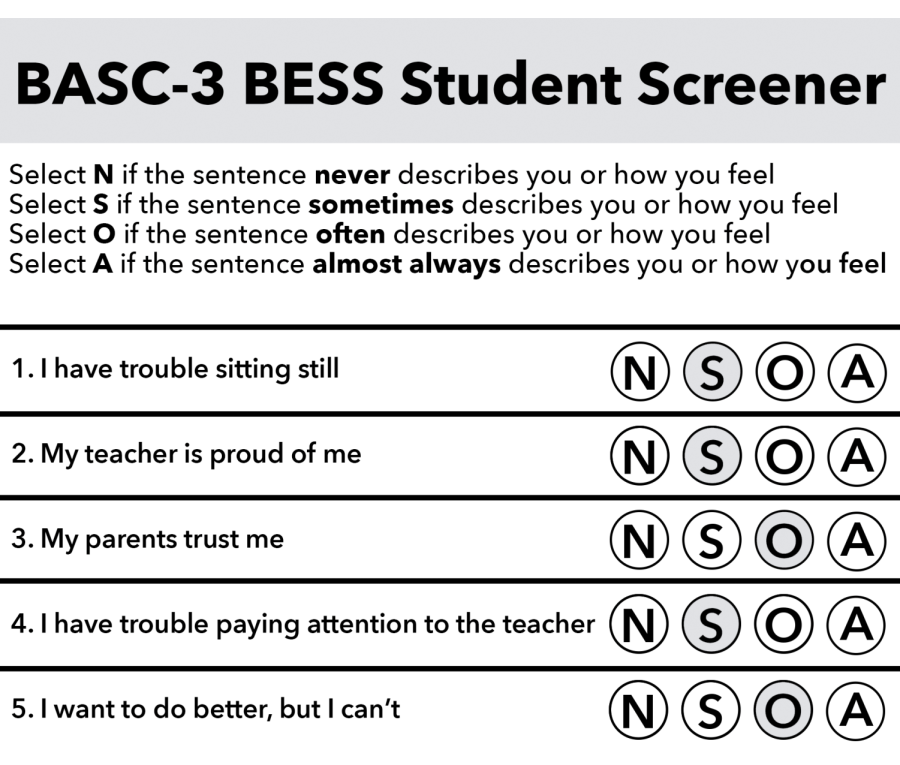


Sara • Dec 10, 2023 at 9:41 pm
This article is SO cool and interesting. Awesome.